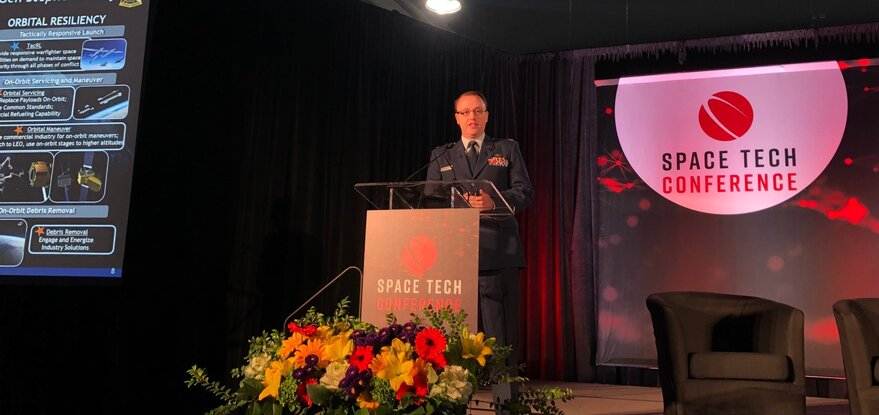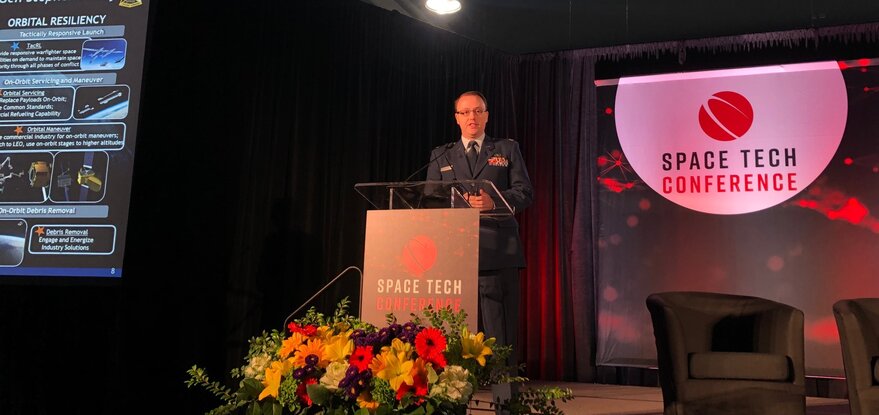
Space Systems Command refines front-door concept (Image Credit: Space News)

LONG BEACH, Calif. – The U.S. Space Systems Command is continuing to refine its concept for establishing a single point of contact for commercial innovators called the front door.
“We want to make ourselves more available for industry,” U.S. Air Force Maj. Adam Burnetta, Space Enterprise Consortium program manager, said May 24 at the Space Tech Expo here. “We want to be that front door for industry to ask any questions, to not get lost in the email riffraff of shifting offices or people, which the military often does.”
By emailing SSCFrontDoor@spaceforce.mil, companies can find contacts within program offices as well as information on filing paperwork with the State Department and Defense Logistics Agency related to government contracts.
“The Space Force needs to do a better job at leveraging commercial capability,” Burnetta said. In order to that, the Space Force needs to make it easier for companies to navigate a “dauntingly complex ecosystem,” he added.
In most cases, the front door will direct companies to the Commercial Services Office, SpaceWERX or the Space Enterprise Consortium (SpEC).
The Commercial Services Office works with mature technology that may need slight modification for use by a government agency.
In contrast, the Space Force’s innovation arm, SpaceWERX, provides Small Business Innovation Research contracts for research, development, testing and evaluation of new technologies.
SpEC works with a consortium of companies to fund space-related prototypes under other transaction authority agreements, which do not fall under extensive federal acquisition regulations. SpEC holds events around the country to introduce prime contractors to suppliers as well as events where Space Force leaders discuss their priorities with industry.
Through the front-door initiative, the Space Systems Command is “facilitating engagement with industry partners in order to leverage innovation that’s taking place in the commercial industry and to ensure that we’re competitive not only with what’s going on commercially domestically, but also what’s happening for governments and commercially internationally as well,” Burnetta said.








